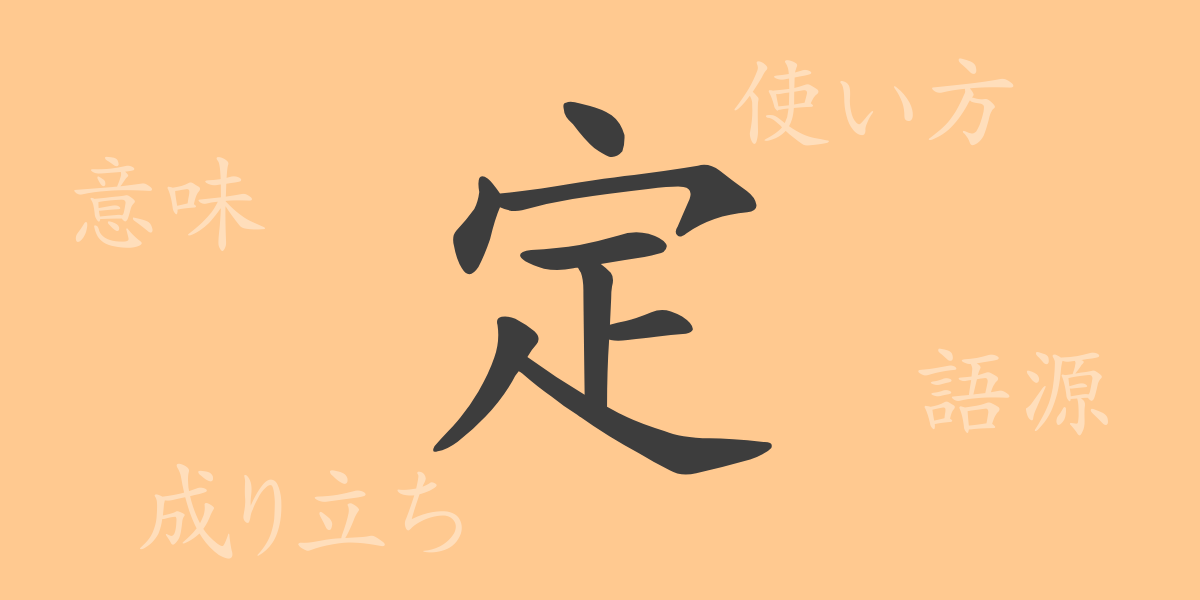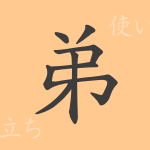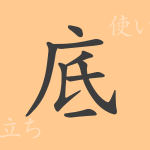The beauty of the Japanese language is manifested in its complex and rich character system. One such Jouyou kanji, ‘定(さだ)’, embodies stability and certainty, playing a crucial role in Japanese language and culture. This article delves into the origins of ‘定’, its contemporary usage, and its impact on the daily lives of the Japanese people.
Origins of ‘定(さだ)’
The kanji ‘定’ evolved from ancient Chinese pictographs, originally formed by combining ‘宀(うかんむり)’, meaning a window, with ‘正’, signifying correctness. This composition conveys the act of correctly assessing things through a window, leading to meanings associated with confirming or establishing something.
Meaning and Usage of ‘定(さだ)’
‘定’ signifies ‘certain’ and ‘unchanging’, used in various words and expressions. For example, it appears in ‘定義(ていぎ)’ (definition) and ‘定規(じょうぎ)’ (ruler) to indicate standards or rules, and in ‘安定(あんてい)’ (stability) and ‘定住(ていじゅう)’ (settlement) to express a state of constancy.
Readings, Stroke Count, and Radical of ‘定(さだ)’
The kanji ‘定’ is rich with diverse information through its readings and structure:
- Readings: On’yomi readings are ‘テイ’ or ‘ジョウ’, while Kun’yomi readings include ‘さだ.める’, ‘さだ.まる’, and ‘さだ.か’.
- Stroke Count: ‘定’ consists of 8 strokes.
- Radical: The radical is ‘宀(うかんむり)’, associated with kanji related to buildings.
Phrases and Proverbs Using ‘定(さだ)’
Many idioms, phrases, and proverbs including ‘定’ exist in Japanese, each conveying wisdom or philosophy. For instance, ‘定時(ていじ)’ refers to a set time, ‘心が定まる’ means to have a settled mind. The proverb ‘岩に磨かれても定かな心’ illustrates a strong will that remains undisturbed by any adversity.
Conclusion on ‘定(さだ)’
The kanji ‘定’ significantly contributes to representing standards and stability within the Japanese language. Understanding its formation and meanings helps deepen the appreciation of Japanese culture. In everyday life, expressions containing ‘定’ are frequently used, bringing order and certainty to our language.

























